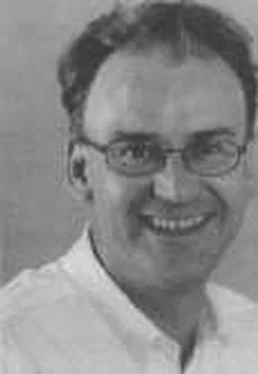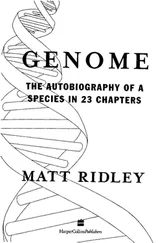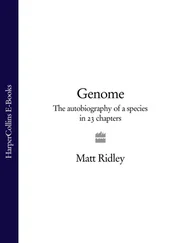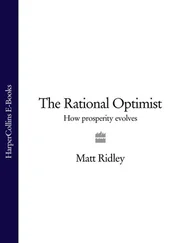The Queen - Matt Ridley
Здесь есть возможность читать онлайн «The Queen - Matt Ridley» весь текст электронной книги совершенно бесплатно (целиком полную версию без сокращений). В некоторых случаях можно слушать аудио, скачать через торрент в формате fb2 и присутствует краткое содержание. Жанр: Старинная литература, на английском языке. Описание произведения, (предисловие) а так же отзывы посетителей доступны на портале библиотеки ЛибКат.
- Название:Matt Ridley
- Автор:
- Жанр:
- Год:неизвестен
- ISBN:нет данных
- Рейтинг книги:4 / 5. Голосов: 1
-
Избранное:Добавить в избранное
- Отзывы:
-
Ваша оценка:
- 80
- 1
- 2
- 3
- 4
- 5
Matt Ridley: краткое содержание, описание и аннотация
Предлагаем к чтению аннотацию, описание, краткое содержание или предисловие (зависит от того, что написал сам автор книги «Matt Ridley»). Если вы не нашли необходимую информацию о книге — напишите в комментариях, мы постараемся отыскать её.
Matt Ridley — читать онлайн бесплатно полную книгу (весь текст) целиком
Ниже представлен текст книги, разбитый по страницам. Система сохранения места последней прочитанной страницы, позволяет с удобством читать онлайн бесплатно книгу «Matt Ridley», без необходимости каждый раз заново искать на чём Вы остановились. Поставьте закладку, и сможете в любой момент перейти на страницу, на которой закончили чтение.
Интервал:
Закладка:
Children plainly have a language organ in their brains ready and waiting to apply the rules. They infer the basic rules of grammar without instruction, a task that has been shown to be beyond the power of a computer unless the computer has been endowed with some prior knowledge.
THE INTELLECTUAL CHESS GAME
::: 315 :::
From about the age of one and a half until soon after puberty children have a fascination with learning a language and are capable of learning several languages far more easily than adults can. They learn to talk irrespective of how much encouragement they are given: Children do not have to be taught grammar, at least not of living languages that they hear spoken; they divine it. They are constantly generalizing the rules they have learned in defiance of the examples they hear (such as "persons gived " rather than
"people gave" ):They are learning to talk in the same way that they are learning to see, by adding the plasticity of vocabulary to the preparedness of a brain that insists on applying rules: The brain has to be taught that large animals with udders are called cows. But to see a cow standing in a field, the visual part of the brain employs a series of sophisticated mathematical filters to the image that it receives from the eye—all unconscious, innate, and unteachable. In the same way, the language part of the brain knows without being taught that the word for a large animal with an udder is likely to behave grammatically like other nouns and not like verbs.`
The point is that nothing could be more " instinctive" than the predisposition to learn a language: It is virtually unteachable. It is hard-wired: It is not learned. It is—horrid thought—genetically determined. And yet nothing could be more plastic than the vocabulary and syntax to which that predisposition applies itself: The ability to learn a language, like almost all the other human brain functions, is an instinct for learning.
If I am right and people are just animals with more than usually trainable instincts, then it might seem that I am excusing instinctive :behavior. When a man kills another man or tries to seduce a woman, he is just being true to his nature: What a bleak, amoral message. Surely there is a more natural basis for morality in the human psyche than that? The centuries-old debate between the followers of Rousseau and Hobbes—whether we are corrupted noble savages or civilized brutes—has missed the point: We are instinctive brutes, and some of our instincts are unsavory: Of course some instincts are very much more moral, and the vast human capacity for altruism and generosity—the glue that has always held society together—is just as natural as any selfishness.
::: 316 :::
The Red Queen
Yet selfish instincts are there, too. Men are much more instinctively capable of murder and of sexual promiscuity than women, for example. But Hobbes 's vindication means nothing because instincts combine with learning. None of our instincts is inevitable; none is insuperable. Morality is never based upon nature. It never assumes that people are angels or that the things it asks human beings to do come naturally. "Thou shalt not kill " is not a gentle reminder but a fierce injunction to men to overcome any instincts they may have or face punishment.
NURTURE 1S NOT NECESSARILY THE OPPOSITE
OF NATURE
The Jamesian notion that man has instincts to learn things at a stroke demolishes the whole dichotomy of learning versus instinct, nature versus nurture, genes versus environment, human nature versus human culture, innate versus acquired, and all the dualisms that have plagued the study of the mind ever since Rene Descartes: For if the brain consists of evolved mechanisms highly specific and intricately designed but flexible in content, then it is impossible to use the fact that a behavior is flexible as an indication that it is
" cultural: " The ability to use language is "genetic" in the sense that it is inherent in the genes ' instructions for putting together a human body to include a detailed language-acquisition device: It is also "cultural " in the sense that the vocabulary and syntax of the language are arbitrary and learned: It is also developmental in the sense that the language acquisition device grows after birth and feeds off the examples it sees around it: Just because language is acquired after birth does not means that it is cultural. Teeth are also acquired after birth.
" There is no more a gene for aggression than there is for wisdom teeth, " wrote Stephen Jay Gould, implying that behavior must be cultural and not "biological."' His facts are right, of course, but that is exactly why his implication is wrong. Wisdom teeth are not cultural artifacts; they are genetically determined even THE INTELLECTUAL CHESS GAME
::: 317 :::
though they develop in late adolescence and even though there is not a single gene that says "grow wisdom teeth. " By the term "a gene for aggression, " Gould means that the difference between the aggressiveness of person A and person B would be due to a difference in gene X: But just as all sorts of environmental differences (such as nutrition and dentists) can cause A to have bigger wisdom teeth than B, so all sorts of genetic differences (affecting how the face grows, how the body absorbs calcium, how the sequence of teeth are ordered) can cause person A to have bigger wisdom teeth than person B: Exactly the same applies to aggression.
Somewhere in our education we unthinkingly absorb the idea that nature (genes) and nurture (environment) are opposites and that we must make a choice between them: If we choose environmentalism, then we are espousing a universal human nature that is as blank as a sheet of paper awaiting culture 's pen, that humans are therefore perfectible and born equal: If we choose genes, then we espouse irreversible genetic differences between races and between individuals. We are fatalists and elitists. Who would not hope with all her heart that the geneticists were wrong?
Robin Fox, an anthropologist who has called this dilemma a quarrel between original sin and the perfectibility of man, portrayed the dogma of environmentalism thus:
This Rousseauist tradition has a remarkably strong grip on the post-Renaissance occidental imagination: 1t is feared that without it we shall be prey to reactionary persuasion by assorted villains, from social Darwinists to eugenicists, fascists and new-right conservatives: To fend off this villainy, the argument goes, we must assert that man is either innately neutral (tabula rasa) or innately good and that bad circumstances are what make him behave wickedly:'
Although the notion of a tabula rasa goes back to John Locke, it was in this century that it reached the zenith of its intellectual hegemony: Reacting to the idiocies of social Darwinists and
::: 318 :::
The Red Queen
eugenicists, a series of thinkers first in sociology, then anthropology, and finally psychology shifted the burden of proof firmly away from nurture and onto nature. Until proved otherwise, man must be considered a creature of his culture, rather than culture a product of man 's nature.
Emil Durkheim, the founder of sociology, set out in 1895
his assertion that social science must assume people are blank slates on which culture writes. Since then, if anything, this idea has hardened into three cast-iron assumptions: First, anything that varies between cultures must be culturally rather than biologically acquired; second, anything that develops rather than appears fully formed at birth must also be learned; third, anything genetically determined must be inflexible. No wonder social science is irredeemably wedded to the notion that nothing in human behavior is "innate, " for things do vary greatly between cultures, do develop after birth, and are plainly flexible. Therefore, the mechanisms of the human mind cannot be innate. Everything must be cultural.
Читать дальшеИнтервал:
Закладка:
Похожие книги на «Matt Ridley»
Представляем Вашему вниманию похожие книги на «Matt Ridley» списком для выбора. Мы отобрали схожую по названию и смыслу литературу в надежде предоставить читателям больше вариантов отыскать новые, интересные, ещё непрочитанные произведения.
Обсуждение, отзывы о книге «Matt Ridley» и просто собственные мнения читателей. Оставьте ваши комментарии, напишите, что Вы думаете о произведении, его смысле или главных героях. Укажите что конкретно понравилось, а что нет, и почему Вы так считаете.












